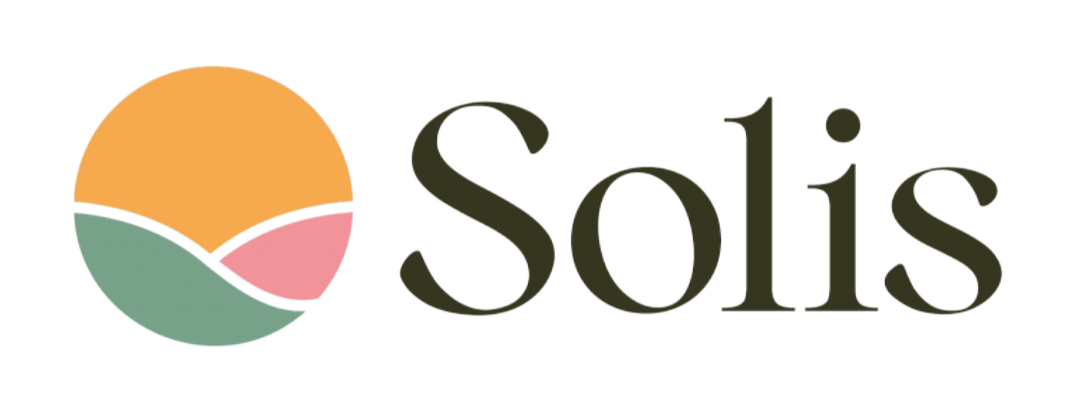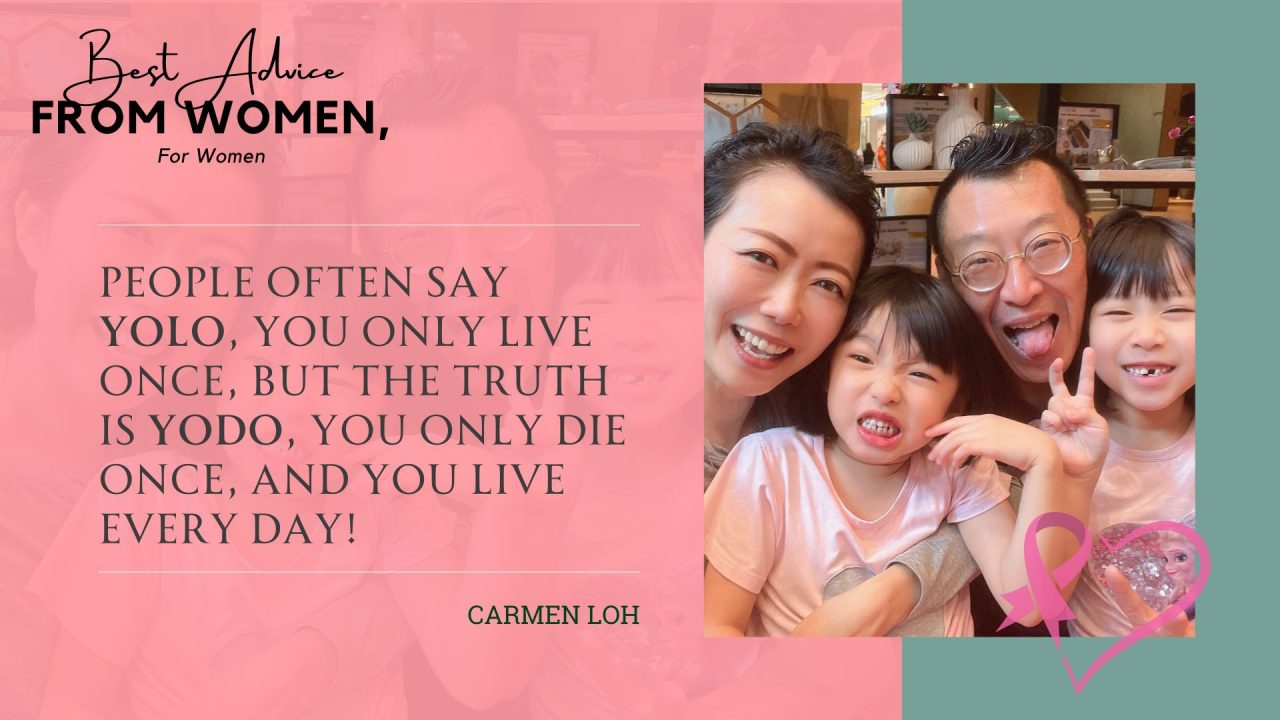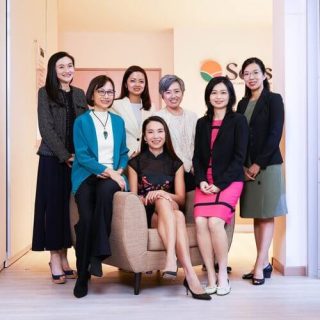There are two types of people: (a) those who meticulously plan every detail of their lives,
and (b) those who plan only what is necessary and handle the rest as it comes.
As someone who understands the importance of breast health, Carmen Loh conscientiously practices breast self-examination (BSE) and maintains her yearly scans. The nature of her job also meant she was financially prepared for any future eventualities.
However, nothing could prepare her for the moment she received her breast cancer diagnosis. In this issue of Best Advice from women, for women, Carmen shares with us the importance of planning for contingencies, especially when you are healthy and symptom-free.
Questions
- What kind of breast health issue did you face?
I was diagnosed with Stage 3 Inflammatory Breast Cancer in October 2022.
- How did you discover it?
I started noticing some rashes on my left breast in September 2022, which I initially thought would disappear with some rash cream. However, the rash persisted and within the next 2-3 weeks, my left breast began to harden, reminding me of the time when I last breastfed my two daughters. Feeling uneasiness about these symptoms, I decided to schedule an appointment with a breast surgeon to clarify my doubts.
- What was your biggest revelation after you were diagnosed?
The biggest revelation was realising that, despite yearly checks, having no family history of cancer, breastfeeding my two daughters and maintaining a healthy lifestyle with BMI 18, I actually knew nothing about breast cancer. Breast cancer was the last thing I ever thought would happen to me.
- What is one thing you wish you knew before you started treatment?
I wished that I had been exposed to more real-life stories and journeys of cancer survivors, similar to mine, as it would have equipped me with more mental preparedness. Nevertheless, I’m grateful for the unwavering support from my doctors and team, who demonstrated remarkable patience, expertise and kindness throughout my journey.
- What has the journey of dealing with or managing this issue been like for you?
Prior to receiving the results on 14 October 2022, I thought I was mentally prepared. However, when my doctor announced the results straight to my face, I was totally taken aback and overwhelmed with mixed emotions. The first thought that crossed my mind was “am I going to die soon, or how much more time do I have?” as my two girls were then 3 and 5 years old. I was absolutely clueless on what was coming next due to the fear of uncertainties that lay ahead of me. The journey has been a roller coaster due to the side effects of chemotherapy. However, I am managing well mentally and emotionally with the support from my loved ones, family and friends.
- Before this happened, what was your attitude toward breast health?
I understood the importance of not taking breast health or overall health for granted.
- Did this journey change that attitude?
No, it did not. This journey has reaffirmed what is still important e.g. to have regular breast checks, and also to have both medical and critical illness insurances so you can be well covered for medical bills in times of need. My financial burden was eased because I had such plans.
- What do you think women in general feel about breast health?
I think there are a lot of myths and perceptions about breast health that women in general have. They do not really know enough to have themselves well-equipped with the knowledge of pre- and post-cancer situations e.g. family history risks, eating too much red meat, alcohol & smoking etc.
- What are your thoughts when it comes to general awareness/education in this area?
I think we can do a lot more to educate and to help support more women so that they are more empowered if cancer happens to them, or to someone close to them. A lot more should be done in helping women emotionally and financially before cancer strikes, as there is very little that can be done after.
- What advice would you give women about breast health?
All women should go for yearly checks, especially mammogram (choose 3D as less painful vs 2D) and constantly monitor themselves. Do not delay treatment if you have any symptoms and be mentally prepared, in case cancer happens, whether at an early or late stage. Always ensure you and your loved ones are well-covered financially by planning with a trusted financial consultant while you are still healthy and without any pre-existing conditions.
Coincidentally, I am both an insurance agent and a breast cancer survivor. When diagnosed, reality can hit so badly that you wished you could live differently if given a second chance in life. People often say YOLO, You Only Live Once, but the truth is YODO, You Only Die Once, and you live every day! This applies to cancer as well; since it is a critical illness, you can only claim from insurance once upon diagnosis. As I am no longer eligible to buy such plans, I am on a mission to share my journey and help others while they still have the chance.
————-
Life is full of surprises and while there are many things beyond our control, we can still take the effort to equip ourselves with the knowledge and understanding of our own body and its changes. Consult a breast surgeon if you are unsure about any breast lumps, bumps or pain, or feel anything abnormal.




